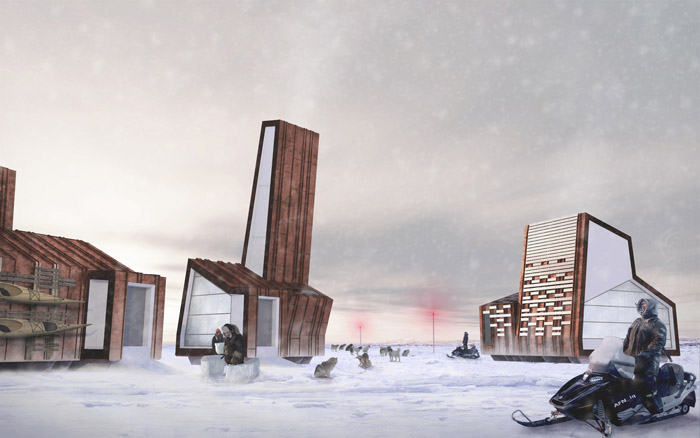
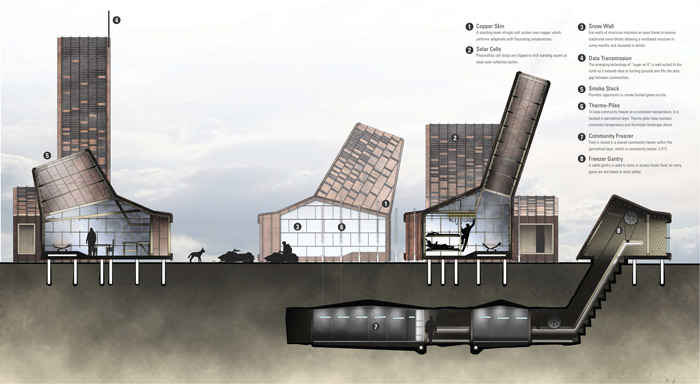


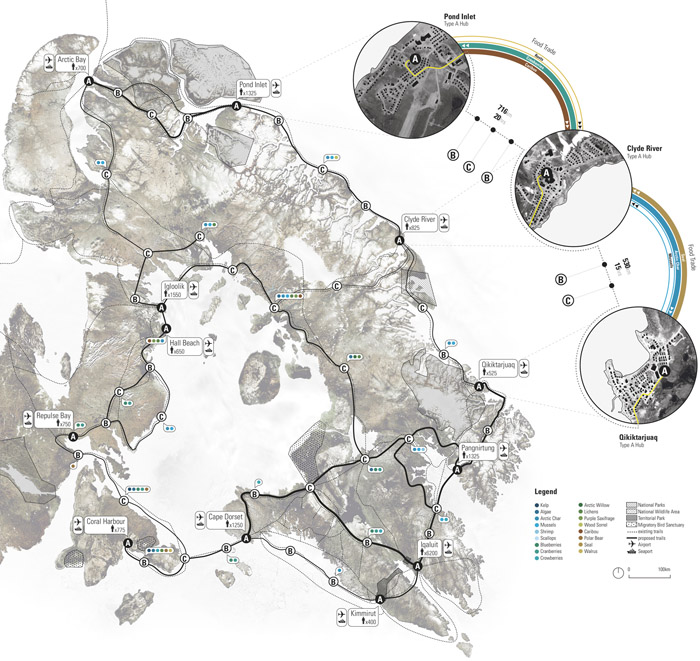

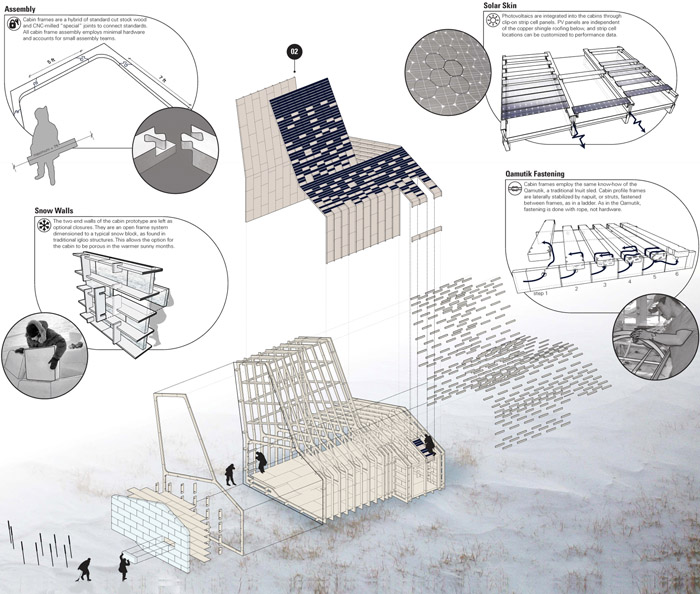
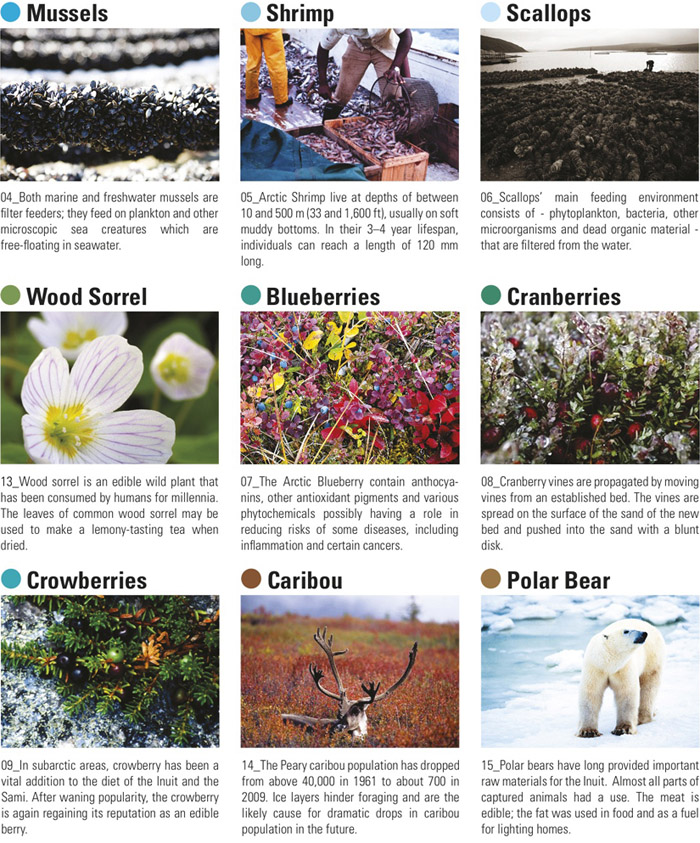

建筑,景观,分析,网络,食品,北极,Lateral,Office
The traditional Inuit diet in Northern Canada, which is centered on hunting and
gathering, has been compromised by an influx of southern manufactured food
products. This has yielded significant health issues as well as the loss of knowledge
of country hunting. The Canadian territory of Nunavut in particular is suffering
from these recent dramatic changes as well as the ongoing challenges of food
security among radically dispersed communities. The Arctic Food Network (AFN)
addresses an urgent need for a snowmobile accessed regional network of arctic
farms, freezers, and camp hubs. The AFN encircles the large body of the Foxe Basin
in Nunavut, Canada, home to a richly diverse wildlife, along the coast of Baffin Island
and some 30,000 Nunavummiut.
这是一个探索型项目。研究的是加拿大北部北极的因纽特人的食物问题,他们传统的狩猎和采集空间正在消
失。这种损失需要得到补救,需要建立北极农场,食物储存空间和运输雪地车共同组成的网络。网络覆盖加
拿大努纳武特地区福克斯盆地辽阔的低地,这里有漫长的海岸线以及伴随海岸线的丰富多样的野生动物。这
个网络保证食品的供应,安全,以及延续因纽特人的传统。要在这样寸草不深的冰原中建立这个网络,其中
就需要特殊的建筑储藏空间。这些建筑将面临不同的环境条件,土地,水面/冰面,临海,同时他们也收集不
同的食品。建筑师们开发出了几个建筑原型,适应原则的三个测试站点的的不同情况。有的深埋在地下,
有的简单的固定在地面,有的可以轻易被拖走。